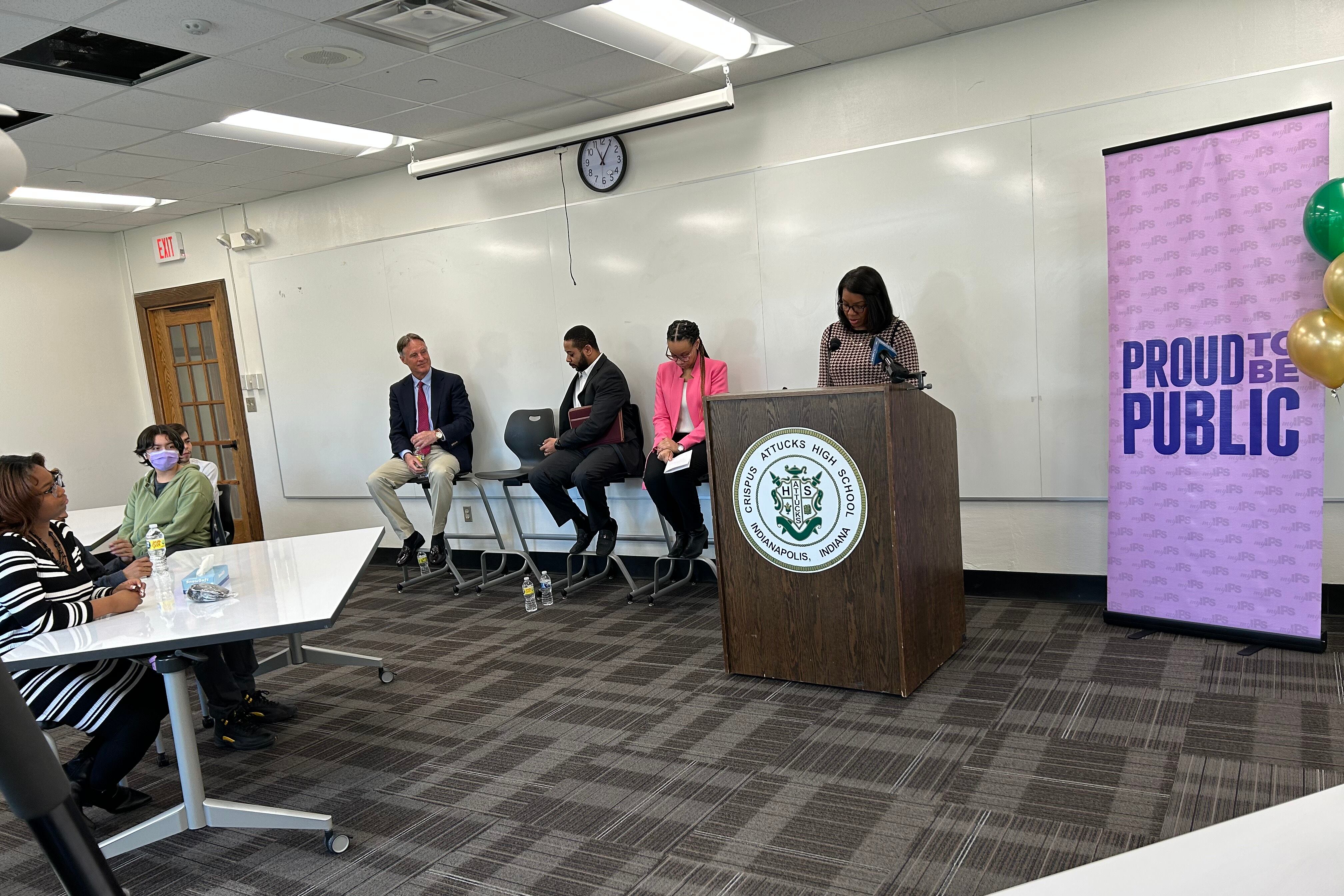Students in Indianapolis Public Schools can now take courses at Harvard University or the University of Pennsylvania without leaving their high school classrooms.
Indianapolis Public Schools is the first district in the state to partner with the National Education Equity Lab to allow Crispus Attucks High School students to enroll in college-level courses at the country’s top universities.
The partnership with the education justice nonprofit will allow students to enroll in college courses offered at prestigious universities throughout the country, such as Howard University, Princeton University, Spelman College, and Wesleyan University.
Those college courses could later count as college credits, depending on where students matriculate.
The program began this semester at Crispus Attucks. Twenty-five students are participating virtually in one of two courses: a psychology course titled “Grit Lab 101” at the University of Pennsylvania taught by author and professor Angela Duckworth, and “Poetry in America” at Harvard University taught by Lisa New, creator of the PBS series by the same name.
IPS hopes to eventually expand the program to its other high schools, partnering with other universities such as Stanford and Georgetown.
“We know the potential that all of our students have,” said Crispus Attucks Principal Lauren Franklin. “Opportunities like this allow them to reach their full potential after high school and for all of their future endeavors in life.”
The partnership means students like Shaheem Woods — who hopes to be among the first in his family to attend college — can experience a college-level course.
Woods said his guidance counselor recommended he sign up for “Grit Lab 101.”
“I wasn’t prepared to take any type of college class,” said Woods, a junior who wants to study business in college. “But I was like, ‘If he picked me, then there’s gotta be something that he sees in me.’”
The National Education Equity Lab recommends that participating students have at least a 3.0 GPA, but does allow guidance counselors to advocate for students who may not hit that threshold, said Alexandra Slack, the nonprofit’s chief operating officer.
The partnership, which costs $250 per student, is paid for through the school’s budget. IPS students do not have to pay to paricipate.
The new program marks the National Education Equity Lab’s first partnership with an Indiana school district. The nonprofit partners with a number of top universities and public school districts throughout the country to offer credit-bearing college courses at no cost to students.
Students watch pre-recorded lectures from university professors while undergraduate teaching fellows also lead classroom discussions — an experience similar to the one found in traditional college courses.
The program expands the dual-credit offerings that IPS already provides through Ivy Tech, Vincennes University, IUPUI, and Martin University. In 2021-22, students earned 105 credits through Vincennes University and 989 credits at Ivy Tech. A typical college course carries three credits.
“For me the power of this experience for our students is not just the credit that they can earn, but also the confidence that they will be able to have knowing that they can be a student taking a Harvard class, that they can be a student taking a UPenn class,” said Superintendent Aleesia Johnson. “That means something as they think about their futures.”
Amelia Pak-Harvey covers Indianapolis and Marion County schools for Chalkbeat Indiana. Contact Amelia at apak-harvey@chalkbeat.org.
This article has been updated to clarify the funding source for the program.







